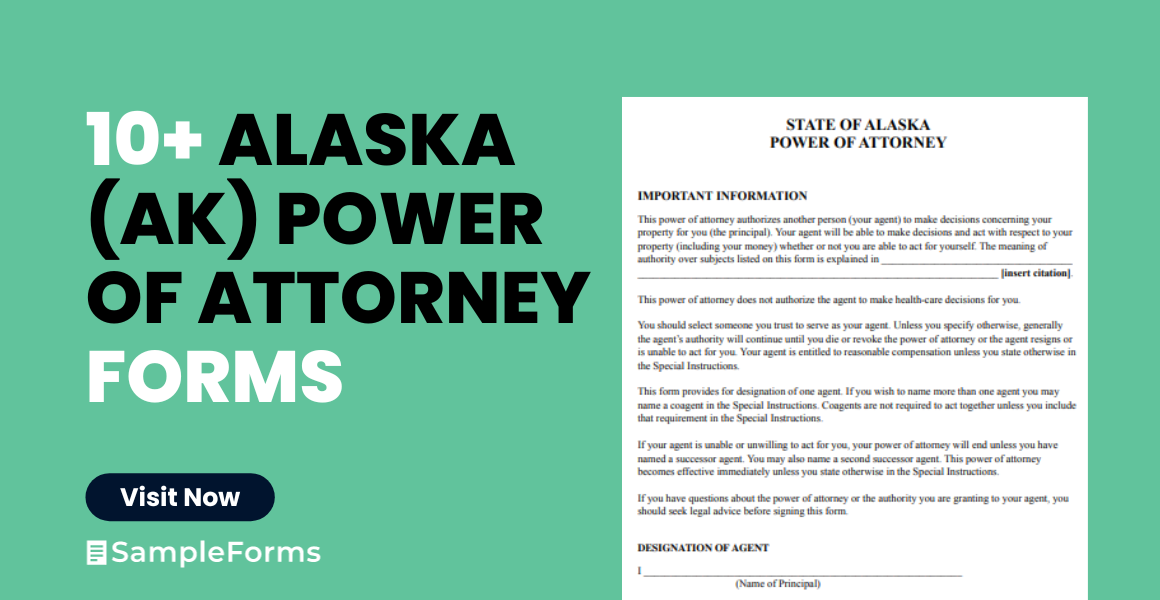Embark on a secure legal journey with our Alaska Power of Attorney Form guide. This essential resource provides Alaskans with detailed insights on how to effectively use and execute a Power of Attorney (POA). Whether you’re planning for future healthcare decisions, managing financial affairs, or delegating legal authority, our guide simplifies the process. Packed with practical tips and user-friendly advice, it’s tailored to help you navigate Alaska’s legal system with confidence and ease.
What is the Alaska Power of Attorney Form?
The Alaska Power of Attorney Form is a legal document that allows an individual in Alaska, known as the principal, to designate another person, called the agent or attorney-in-fact, to make decisions on their behalf. This form is used in various situations, such as managing financial affairs, making healthcare decisions, or handling business transactions. The extent of the agent’s authority can be broad or limited, and it’s defined by the principal’s preferences and the specific terms outlined in the form. This tool is crucial for planning ahead and ensuring that your affairs are handled according to your wishes, especially in circumstances where you might not be able to make decisions yourself.
What is the Best Sample Alaska Power of Attorney Form?
ALASKA POWER OF ATTORNEY FORM
Principal’s Information:
- Name: [__________]
- Address: [__________]
- Contact Number: [__________]
Agent’s Information:
- Name: [__________]
- Address: [__________]
- Contact Number: [__________]
Type of Power of Attorney:
- Durable (Financial) Power of Attorney
- Non-Durable (Financial) Power of Attorney
- Medical Power of Attorney
- Limited Power of Attorney
- Other: [__________]
Powers Granted:
(Describe the specific powers granted to the agent, such as financial decisions, property management, healthcare decisions, etc.)
[____________________________________________________________________________________]
Special Instructions:
(Include any limitations, conditions, or specific instructions for the agent.)
[____________________________________________________________________________________]
Effective Date and Duration:
- Effective Date: [__________]
- Termination Date (if applicable): [__________]
Third Party Reliance:
This document authorizes the above-named agent to act on my behalf. Third parties may rely on the representations of the agent as if they were my own.
Signatures:
- Principal’s Signature: ___________________________ Date: [__________]
- Agent’s Signature: ___________________________ Date: [__________]
Notarization
(if required): State of Alaska ) ) ss. County of ________ )
On this ___ day of , 20, before me, a notary public, personally appeared [________] and [___], known to me (or satisfactorily proven) to be the persons whose names are subscribed to the within instrument and acknowledged that they executed the same for the purposes therein contained.
In witness whereof, I hereunto set my hand and official seal.
Notary Public My Commission Expires: ________
Note: This is a sample form. It’s important to consult with a legal professional to ensure that the form meets your specific needs and complies with Alaska state laws.
This fillable sample form is designed to provide a general template for an Alaska Power of Attorney. It should be customized to fit the specific requirements and circumstances of the individual using it.
10+ Free Alaska Power of Attorney Form
1. Alaska Power of Attorney Form
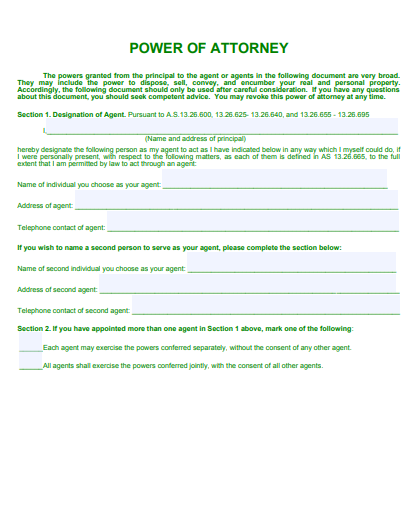
2. Special Alaska Power of Attorney Form
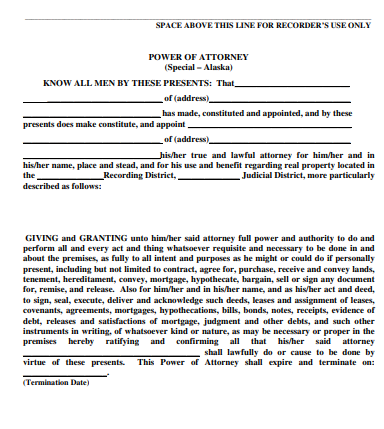
3. Sample Alaska Power of Attorney Form

4. General Alaska Power of Attorney Form
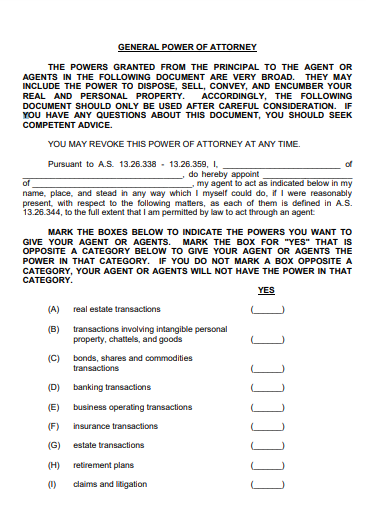
5. Simple Alaska Power of Attorney Form

6. Alaska Power of Attorney Form for Child

7. Alaska Power of Attorney Form Motor Vehicles
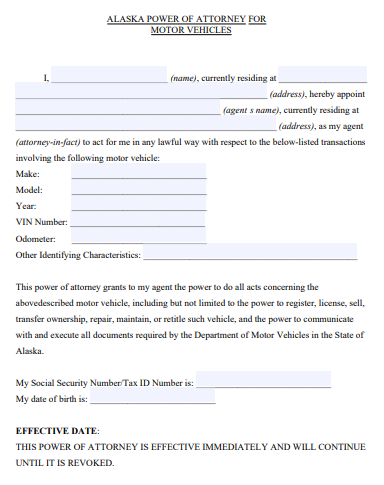
8. Standard Alaska Power of Attorney Form
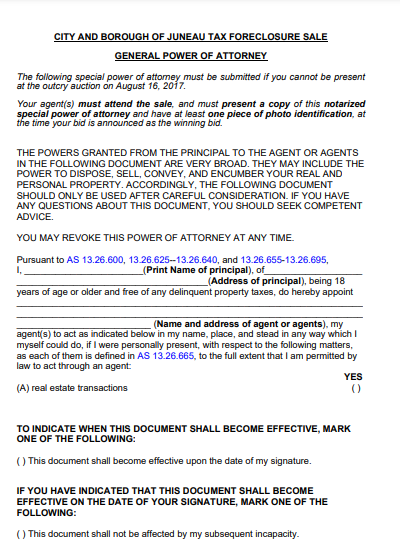
9. Blank Alaska Power of Attorney Form
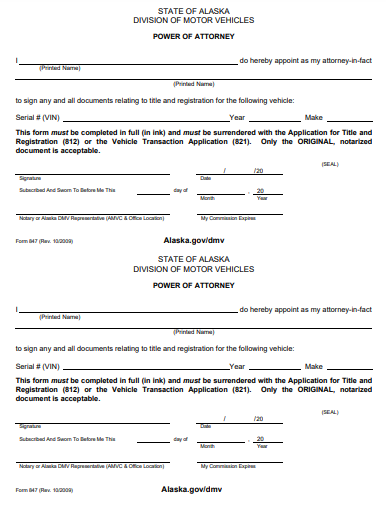
10. Alaska Power of Attorney Form for Minor

11. Printable Alaska Power of Attorney Form
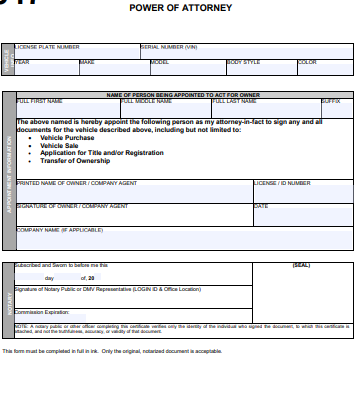
Does a power of attorney need to be notarized in Alaska?
Yes, in Alaska, a Power of Attorney (POA) generally needs to be notarized to be considered legally valid. Notarization serves as an official verification of the identity of the parties involved and confirms that the signatures on the document are genuine. This process adds a layer of legal protection and authenticity, ensuring that the document is recognized and can be relied upon in legal and financial matters.
It’s important to note that the specific requirements for a Power of Attorney can vary depending on its type and purpose. For instance, a POA for healthcare decisions might have different requirements compared to one for financial matters. Therefore, it’s advisable to consult with a legal professional or refer to Alaska state laws to understand the exact requirements for your Power of Attorney.
What is a Form 774 power of attorney in Alaska?
Form 774, commonly known as the Power of Attorney (POA) form in Alaska, is a legal document that grants one individual (the principal) the authority to appoint another person (the agent or attorney-in-fact) to manage their affairs. This document is crucial for various situations, especially where the principal might be unable to make decisions due to health issues or other reasons.
Key Features of Form 774
- Designation of Agent: The principal appoints an agent who will have the authority to act on their behalf. This agent can be a trusted family member, friend, or a professional.
- Scope of Authority: The form outlines the specific powers granted to the agent. These can range from managing financial affairs, making healthcare decisions, to handling real estate transactions.
- Duration: The POA can be either durable or non-durable. A durable POA remains in effect even if the principal becomes incapacitated, while a non-durable POA ceases if the principal loses decision-making capacity.
- Revocation: The principal retains the right to revoke the power of attorney at any time, as long as they are mentally competent.
- Witnesses and Notarization: For the form to be legally binding in Alaska, it must be signed in the presence of a notary public or two witnesses.
Importance of Form 774 in Alaska
- Estate Planning: It’s an essential tool for estate planning, ensuring that the principal’s financial matters are handled according to their wishes.
- Healthcare Decisions: In cases where the principal cannot make healthcare decisions, the appointed agent can make critical medical decisions.
- Legal Representation: The agent can represent the principal in legal matters, including litigation or negotiations.
- Peace of Mind: It provides peace of mind to the principal, knowing that their affairs will be managed by someone they trust.
Form 774, the Power of Attorney in Alaska, is a vital legal document for anyone seeking to secure their affairs and ensure that their decisions are respected, even in their absence or incapacity. It’s advisable to consult with a legal professional when drafting this document to ensure it aligns with personal needs and complies with Alaska state laws.
What is a power of attorney 847 in Alaska?
In Alaska, Power of Attorney 847 refers to a specific legal form used to establish a power of attorney arrangement. This document enables an individual (the principal) to designate another person (the agent or attorney-in-fact) to make decisions and act on their behalf in various matters.
Key Aspects of Power of Attorney 847
- Agent Appointment: The principal nominates an agent who is entrusted with the authority to act in their stead. This agent is often a close family member, friend, or a professional advisor.
- Authority Scope: The document details the extent of powers granted to the agent. These powers can encompass handling financial transactions, making healthcare choices, and dealing with property matters.
- Durable vs. Non-Durable: Power of Attorney 847 can be set up as either durable or non-durable. A durable power of attorney remains effective even if the principal becomes incapacitated, whereas a non-durable one becomes invalid under such circumstances.
- Revocation Rights: The principal maintains the right to revoke or alter the power of attorney as long as they are mentally competent.
- Legal Requirements: For the power of attorney to be valid in Alaska, it must be signed in the presence of a notary public or two adult witnesses.
Understanding the Alaska Power of Attorney Form
A Power of Attorney (POA) form is a legal document that allows you to appoint someone to manage your affairs if you’re unable to do so. In Alaska, it’s essential to understand the specifics of how these forms work to ensure your interests are protected.
Selecting the Right Type of POA
- General Power of Attorney: Grants broad powers to your agent in handling your affairs.
- Limited Power of Attorney: Assigns specific duties for a limited time or purpose.
- Healthcare Power of Attorney: Allows your agent to make medical decisions on your behalf.
- Durable Power of Attorney: Remains in effect even if you become incapacitated.
Choosing Your Agent Wisely
- Trustworthiness: Ensure your agent is reliable and has your best interests at heart.
- Understanding Your Wishes: Your agent should be aware of your preferences and values.
- Capability: Choose someone who is capable of handling financial and legal responsibilities.
Legal Requirements in Alaska
- Formalities: The POA must be in writing, signed by the principal, and notarized.
- Capacity: You must be mentally competent when signing the POA.
- Witnesses: Having witnesses can add an extra layer of legality, though not always required.
Safeguarding Your Interests
- Clear Terms: Specify what powers your agent has and any limitations.
- Review Periodically: Update your POA as your circumstances change.
- Revoke if Necessary: You have the right to revoke your POA at any time.
Communicating with Your Agent
- Regular Updates: Keep your agent informed about any changes in your life or wishes.
- Documentation: Encourage your agent to keep detailed records of all transactions and decisions.
- Open Dialogue: Maintain open communication to ensure your agent understands their role.
Professional Advice
- Legal Consultation: Consider consulting with an Alaskan attorney to tailor the POA to your specific needs.
- Financial Expertise: If your POA includes financial decisions, advice from a financial advisor can be beneficial.
An effective Alaska Power of Attorney form is a powerful tool in managing your affairs. By understanding the types, choosing the right agent, and adhering to legal requirements, you can ensure that your interests are well-protected. Regular communication and professional advice are key to maintaining an effective POA.
How can I get an Alaska Power of Attorney form online?
You can download an Alaska Power of Attorney form online from legal websites, state government portals, or legal services. Ensure the form complies with Alaska state laws.
Why should I have an Alaska PoA?
Having an Alaska PoA ensures someone you trust can legally make decisions on your behalf if you’re unable to do so, covering financial, legal, or health matters.
Which type of Power of Attorney do I need in Alaska?
The type of PoA you need in Alaska depends on your needs: General for broad authority, Limited for specific tasks, Healthcare for medical decisions, or Durable for long-term planning.
Do I Need a Lawyer to Review My Alaska PoA?
While not mandatory, having a lawyer review your Alaska PoA can ensure it meets legal standards and accurately reflects your wishes, offering peace of mind.
Does a Power of Attorney Need to Be Notarized, Witnessed, and/or Recorded in Alaska?
In Alaska, a Power of Attorney must be notarized. Witnessing is recommended for added legality, but not required. Recording is necessary only for real estate transactions.
In conclusion, understanding and creating an Alaska Power of Attorney form is crucial for ensuring your affairs are managed according to your wishes. By selecting the appropriate type, understanding legal requirements, and possibly consulting a lawyer, you can effectively safeguard your interests. Remember, a properly executed PoA is key to peace of mind and legal assurance in Alaska.
Related Posts
-
10+ Free New Hampshire (NH) Power of Attorney Form Download – How to Create Guide, Tips
-
10+ Free Nevada (NV) Power of Attorney Form Download – How to Create Guide, Tips
-
10+ Free Nebraska (NE) Power of Attorney Form Download – How to Create Guide, Tips
-
10+ Free Montana (MT) Power of Attorney Form Download – How to Create Guide, Tips
-
10+ Free Missouri (MO) Power of Attorney Form Download – How to Create Guide, Tips
-
10+ Free Minnesota (MN) Power of Attorney Form Download – How to Create Guide, Tips
-
10+ Free Mississippi (MS) Power of Attorney Form Download – How to Create Guide, Tips
-
10+ Free Massachusetts (MA) Power of Attorney Form Download – How to Create Guide, Tips
-
10+ Free Maryland (MD) Power of Attorney Form Download – How to Create Guide, Tips
-
10+ Free Maine (ME) Power of Attorney Form Download – How to Create Guide, Tips
-
10+ Free Louisiana (LA) Power of Attorney Form Download – How to Create Guide, Tips
-
10+ Free Kentucky (KY) Power of Attorney Form Download – How to Create Guide, Tips
-
10+ Free Kansas (KS) Power of Attorney Form Download – How to Create Guide, Tips
-
10+ Free Iowa (IA) Power of Attorney Form Download – How to Create Guide, Tips
-
10+ Free Indiana (IN) Power of Attorney Form Download – How to Create Guide, Tips
